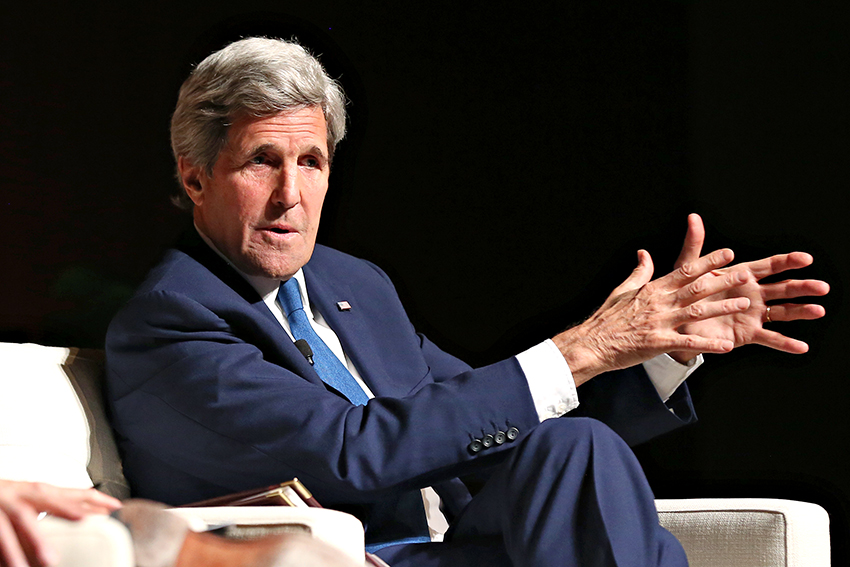Drawing on his experience as a Vietnam veteran, Secretary of State John Kerry said America has made significant progress in its relationship with Vietnam, but more needs to be done.
“The majority in Vietnam don’t remember the war, and that calls for a totally different relationship,” Kerry said. “It is clear Vietnam is reaching towards the globalized world.”
Speaking to an audience of nearly 930 people at the LBJ Library on Wednesday, Kerry gave a keynote address and later answered questions from documentary filmmaker Ken Burns about his time in Vietnam and how that influenced his worldview as Secretary of State.
While Kerry said he was concerned about Vietnam’s authoritarian government, he said mutual trade deals and increased numbers of Americans and Vietnamese visiting each other’s countries established a “new normal” for a relationship between two countries that were formerly at war.
“There’s no question that our government and the government in Hanoi has differences,” Kerry said. “The difference is that we actually talk about them.”
While America did make “huge mistakes in assumptions about the war,” Kerry said America should not blame the Vietnam War on the soldiers. He said veterans had to fight for increases in the GI bill and services to deal with homelessness and trauma in the aftermath of the war.
“The confusion that some Americans showed in blaming the warriors for the war itself was tragically misplaced,” Kerry said. “Our veterans did not receive either the welcome home, nor the benefits, nor the treatment that they not only deserved, but needed. The fundamental contract between soldier and government simply was not honored.”
Kerry, who served as a lieutenant in the war from 1966 to 1970, said his time served in Vietnam also taught him that he should not send young men and women into combat without considering other reasonable options. Kerry said soldiers put their lives on the line and risk suffering “grievous injury” if they survive.
“You had better make damn sure you are making war the last resort,” Kerry said to thunderous applause from the audience.
Kerry said he had “deep reservations” about an all-volunteer military force, arguing that war is best prevented when people from all classes and generations serve together, whether through military or other forms of service.
“[Shared responsibility is] one of the best ways you don’t have war,” Kerry said. “Every American has got to find a way to serve, somehow.”
Burns, who introduced Kerry on stage, said Kerry served as a courageous national spokesperson for ending the war and had continued to show that courage as Secretary of State.
“He spoke hard truths about the war,” he said. “His words echoed with sincerity and deep conviction.”
Karen Lecuyer, wife of a Vietnam veteran, said she admired how Kerry protested the war in a way that would lead to changes in future American military efforts. “Situations change, and we need to look at the context of what may be coming in future years,” Lecuyer said. “He built on the lessons that he learned.”
Even though the war ended decades ago, Kerry said he experiences flashbacks to the war from time to time.
“I just lost one of my crew members a few weeks ago,” Kerry said. “It stays with you.”





















